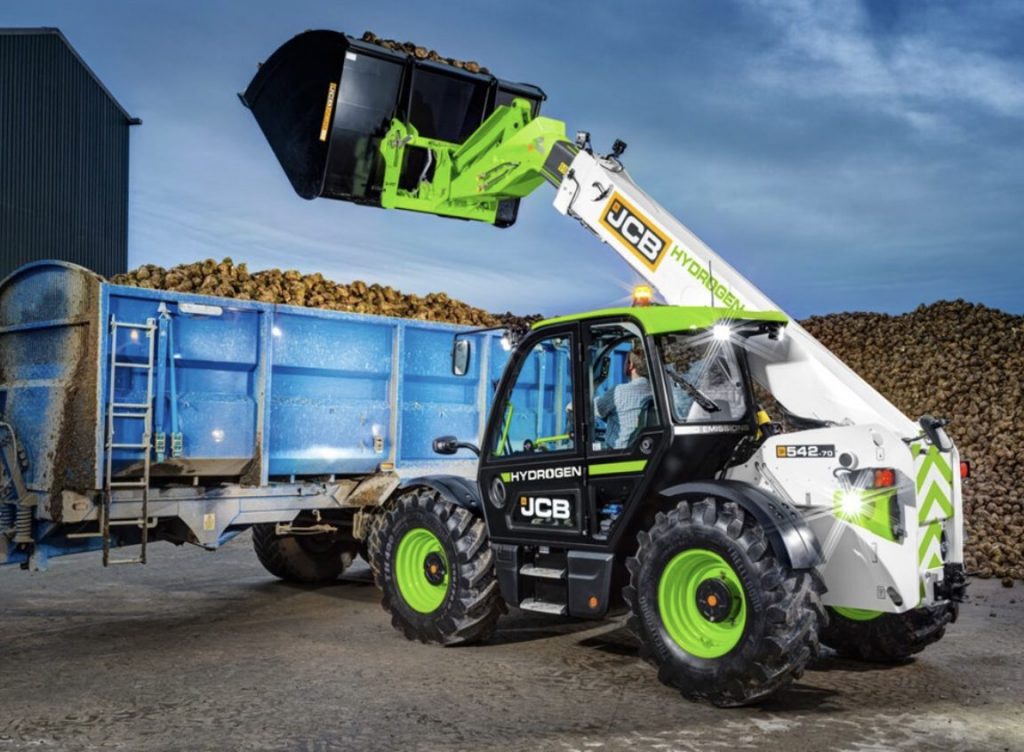

Why the time is right for hydrogen combustion engines.
More and more companies are waking up to the likelihood that, for many use cases, hydrogen combustion engines are the best next step in their decarbonisation journey.
Some saw this coming earlier than others. JCB, one of the world’s leading plant machinery manufacturers, began working on a project to develop a hydrogen internal combustion engine (ICE) back in July 2020.
JCB soon identified hydrogen ICE as its technology of choice after realising that fuel cells, in their current form, were unlikely to withstand the rigours of life on a building site or quarry. The British company has built prototype backhoe loaders and loadall telescopic handlers powered by hydrogen ICE and is due to give the technology its international debut at the Conexpo trade fair in Las Vegas in March.

JCB, one of the world’s leading plant machinery manufacturers, began working on a project to develop a hydrogen internal combustion engine (ICE) back in July 2020, since when it has won numerous awards for the hydrogen technology that now powers several zero-carbon prototype machines.
Other plant machinery manufacturers have followed suit. In October last year, German company Liebherr debuted its hydrogen-powered R 9XX H2 crawler excavator. The engine can reduce CO2 emissions by almost 100% on a tank-to-wheel basis or by 70% cradle-to-grave, i.e., including the manufacture of the engine itself, Liebherr said at the time.
Hydrogen ICE is also attracting attention from the trucking industry. Engine manufacturer Cummins recently reported strong demand for its hydrogen combustion engines from major logistics companies who see them as less revolutionary than a jump straight to fuel cells from diesel.
That logic was echoed earlier this year by Tata Motors, one of the largest vehicle manufacturers in India, which said it expects hydrogen ICE could be commercialised faster than fuel cells because it’s more tolerant of lower purity hydrogen and because it allows companies like Tata to leverage their existing intellectual property and ICE infrastructure.
While these cases stand a good chance of becoming mainstream, interest in hydrogen ICE isn’t confined to plant machinery and trucks. Passenger vehicle brands Toyota and Porsche have also been investing in hydrogen combustion technology.

JCB soon identified hydrogen ICE as its technology of choice after realising that fuel cells, in their current form, were unlikely to withstand the rigours of life on a building site or quarry. The British company has built prototype backhoe loaders and loadall telescopic handlers powered by hydrogen ICE and is due to give the technology its international debut at the Conexpo trade fair in Las Vegas in March.
In December, Toyota unveiled a prototype hydrogen combustion engine car, the Corolla Cross H2 Concept, based on the GR Corolla and equipped with a 1.6 litre, 3-cylinder turbo engine.
Toyota also cited the ability to leverage to leverage existing ICE technologies, as well as rapid refuelling times and a significant decrease in the use of rare and expensive elements required for battery production.
While the concept is only 40% of the way to commercialisation and there is no guarantee that it will get there, Toyota is convinced by the potential of hydrogen combustion in motor sports. Earlier in 2022, Toyota fielded a GR Corolla H2 with a hydrogen combustion engine in all races of the Super Taikyu endurance series.

Tata Motors, one of the largest vehicle manufacturers in India, which said it expects hydrogen ICE could be commercialised faster than fuel cells because it’s more tolerant of lower purity hydrogen and because it allows companies like Tata to leverage their existing intellectual property and ICE infrastructure.
Hydrogen combustion engines are seen as a way of cleaning up the motorsports industry while retaining the excitement that comes from hearing an engine rev – something that is not replicable with battery-electric vehicles. Some have gone so far as to say that hydrogen ICE could be the saviour of the supercar.
That may also be the thinking behind Porsche’s recent foray into hydrogen ICE. The German luxury sportscar marque recently announced that it had produced a prototype V8, 4.4-liter internal combustion engine while also reducing fuel consumption and maintaining emissions equivalent to ambient air.
Hydrogen combustion engines could end up powering not only the construction machines that are responsible for producing much of the world’s infrastructure, but the cars that allow us to enjoy our downtime at the end of the day, whether as drivers or spectators.
To learn more about HYCAP click here.